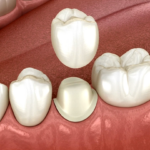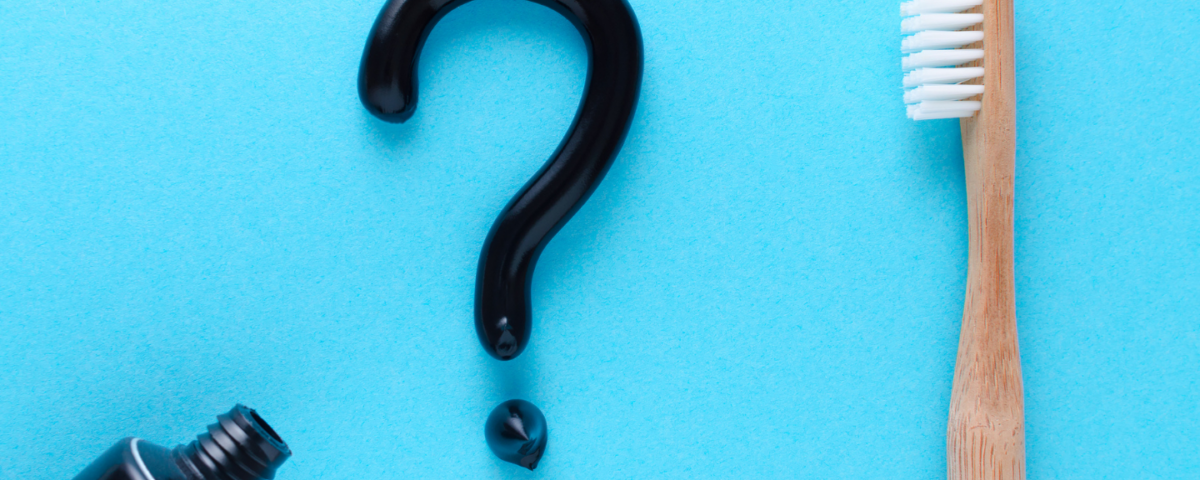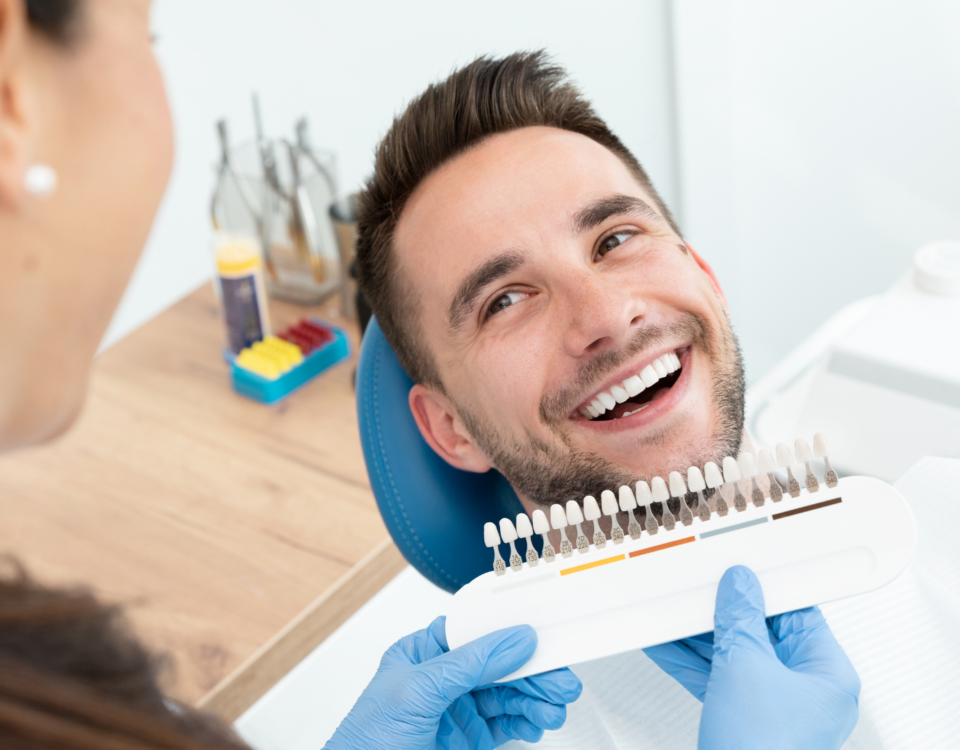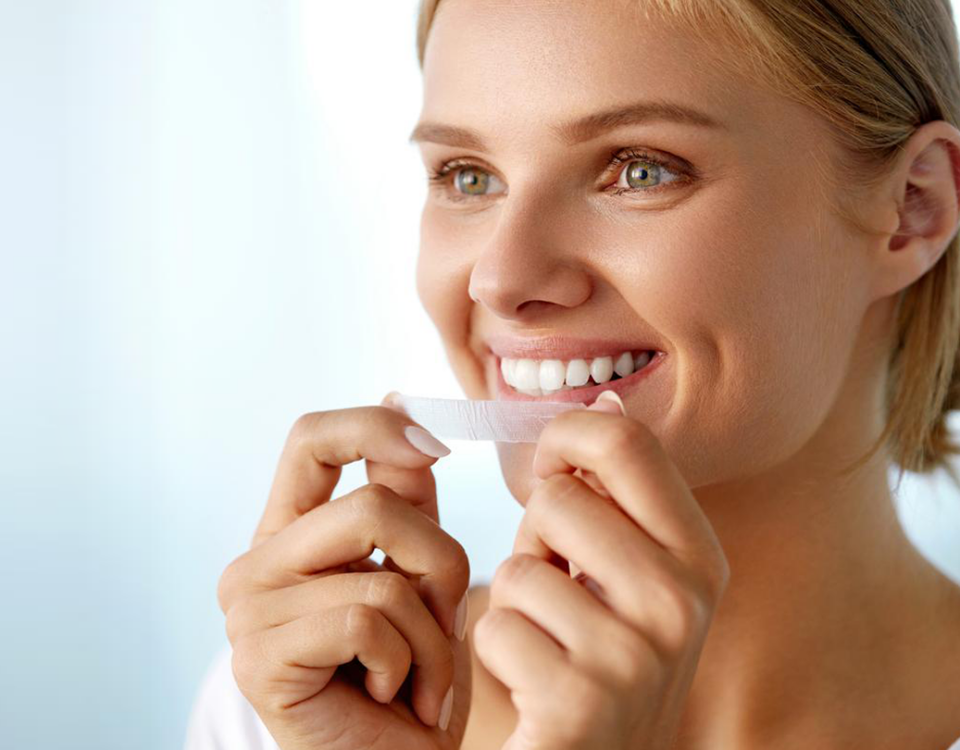
How Long Does a Dental Crown Last
November 26, 2023
Exploring the Components: What Are Dental Implants Made Of?
February 29, 2024Key Takeaways:
Effectiveness of Charcoal Toothpaste:
While charcoal toothpaste claims to whiten teeth through the absorption of stains and bacteria, its primary whitening mechanism is abrasive action.
Safety Concerns:
Charcoal toothpaste may lack essential ingredients like sodium fluoride, increasing the risk of cavities.
Alternative Whitening Options:
Professional dental treatments offer safer and more effective whitening alternatives. These include in-office treatments supervised by dentists and take-home kits with professional-grade ingredients.
Is the secret to a brighter smile as simple as changing your toothpaste to one that uses charcoal?
Charcoal toothpaste brands tout the ability of their products to whiten your teeth effortlessly. These charcoal toothpastes may have blindingly white smiles on their packaging to entice you to try them, but do they work as they claim to? You might get some results from using charcoal toothpaste, but it differs from what you expect.
Does charcoal toothpaste work to give you a whiter smile? Find out below.
How Does Charcoal Toothpaste Differ from Other Types of Toothpaste?
Charcoal toothpastes include popular brands, such as Crest, and lesser-known brands. While some add charcoal to fluoride-based toothpaste, others do not have fluoride in their formulas. All these types of toothpaste differ from standard dentifrices in their inclusion of activated charcoal.
The activated charcoal turns the color of these toothpastes black, which seems counterintuitive for a whitening product. Manufacturers of these toothpaste brands tout the benefits of charcoal for whitening teeth and freshening breath. However, charcoal has pros and cons to its use.
What Is Activated Charcoal?
Activated charcoal is a special type of charcoal that undergoes a process to make it extra porous. It can absorb odors and poisons. This type of charcoal is so effective at absorbing toxic substances from the digestive system that poison control centers occasionally recommend people use it for some cases of ingested poison.
Unfortunately, the absorptive powers of activated charcoal can work too well when ingested. It can absorb some medications, most notoriously oral contraceptives, reducing their efficacy. While you should not swallow your toothpaste, your mouth’s mucus membranes can still absorb some of the charcoal while you brush. Thus, the activated charcoal can have an impact on your body even if you avoid swallowing the toothpaste.
Does the absorptive nature of activated charcoal work to remove germs and stains from teeth? The claims differ significantly from the results.
How Does Charcoal Toothpaste Work?
Makers of charcoal toothpaste claim that the ability of activated charcoal to absorb toxins allows it to draw bacteria and stains from the teeth. However, the primary way that this type of toothpaste works to whiten teeth is simply through the abrasiveness of the charcoal physically rubbing away minor surface stains.
Other over-the-counter whitening toothpaste brands also use abrasive ingredients without charcoal to remove surface stains. These products, though, also use gentler ingredients and include fluoride, making them safer for daily use.
Good brushing habits and twice-a-year professional cleanings can also remove minor surface stains without the potentially dangerous side effects of using charcoal toothpaste.
Does Charcoal Toothpaste Work for Tooth Whitening?
A brighter smile does not come from a tube of charcoal toothpaste. In fact, this messy alternative to regular toothpaste could cause damage to your teeth.
Some brands of charcoal toothpaste lack the vital ingredient sodium fluoride. This essential ingredient prevents cavities from forming by helping your teeth to maintain their mineral balance. Without regular fluoride-containing toothpaste as part of your dental hygiene routine, you could increase your chances of developing painful cavities.
Additionally, the toothpaste is black and abrasive due to the inclusion of activated charcoal. In order to completely brush away all charcoal from your teeth, you will need to brush harder or longer than usual. This extra brushing can cause excessive wear on your enamel. In a study comparing charcoal and standard whitening toothpaste, researchers found no difference in whitening ability and increased enamel wear from the charcoal toothpaste brushed teeth. Once your enamel wears away, it will not grow back, and the exposed dentin underneath will give your teeth a darkened, yellowish appearance.
The results of a 2022 study examining published research showed that charcoal toothpaste was both less safe and less effective compared to other whitening options. If you want a brighter smile, you have many alternatives that offer safer, more effective whitening.
What Does Work for Tooth Whitening?
You don’t need to rely on the trendiest new charcoal toothpaste to get a better smile. In fact, doing so may not be as effective as opting for whitening alternatives. Your dentist can help you get a bright smile through a variety of cosmetic treatments both in the office and at home. Plus, they can recommend an over-the-counter whitening toothpaste to keep your smile looking great between dental whitening treatments.
Dentist-Provided Solutions
The safest way to whiten your teeth is with your dentist’s help. They can recommend an in-office treatment for rapid results or a take-home option that uses professional-grade ingredients you cannot get from a store. Plus, with a dentist supervising your whitening, you avoid some of the hazards of DIY over-the-counter strips or kits.
In-office whitening gives you the best, longest-lasting results by improving teeth whiteness in multiple shades. In addition, you can see results only a few hours after your first appointment.
Take-home kits provide you with convenience and powerful whitening that you do on your own time over five to ten days of treatment. Though not as fast as in-office whitening, you can still get dramatically brighter results in only a few days with this option.
Over-the-Counter Solutions
You can find whitening solutions at numerous stores, but they vary in effectiveness and can cause tooth sensitivity and gum irritation. The best option among the over-the-counter options is a fluoride-based whitening toothpaste that you use between whitenings from your dentist to keep your teeth looking great. Make sure you use a product with the American Dental Association’s seal of approval to ensure that you have a toothpaste that has proven safety and efficacy in cavity prevention.
Bottom Line: Work with Your Dentist to Obtain and Maintain a Bright, White Smile
Whether you already have a great smile you want to maintain or need help with improving the whiteness of your teeth, talk to your dentist. They can let you know the best type of whitening options for your smile.
If you don’t have a dental professional you can trust for preventative, cosmetic, and restorative treatments, call us at Trailhead Advanced Dentistry. We’ll give you the personalized dental care you need to get your desired smile.




